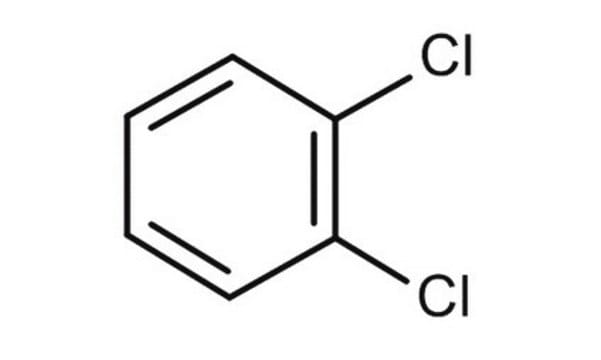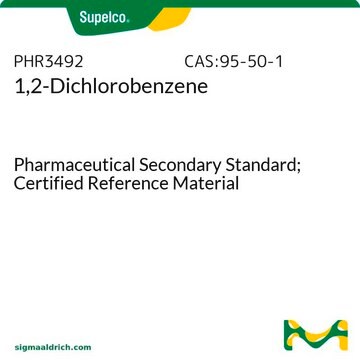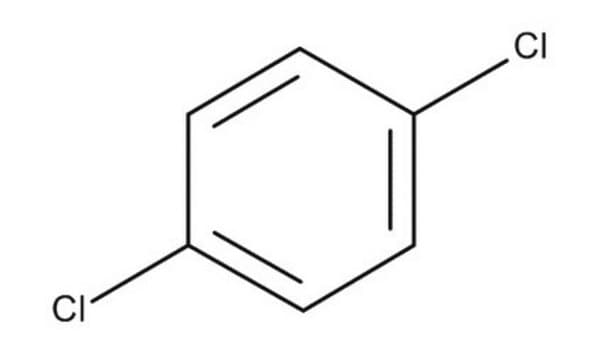113808
1,3-Dichlorobenzene
98%
Sinónimos:
m-Dichlorobenzene
About This Item
Productos recomendados
vapor pressure
5 mmHg ( 38.8 °C)
assay
98%
form
liquid
refractive index
n20/D 1.546 (lit.)
bp
172-173 °C (lit.)
mp
−25-−22 °C (lit.)
solubility
H2O: soluble 1.23 mg/L
alcohol: soluble
diethyl ether: soluble
density
1.288 g/mL at 25 °C (lit.)
functional group
chloro
SMILES string
Clc1cccc(Cl)c1
InChI
1S/C6H4Cl2/c7-5-2-1-3-6(8)4-5/h1-4H
InChI key
ZPQOPVIELGIULI-UHFFFAOYSA-N
¿Está buscando productos similares? Visita Guía de comparación de productos
Categorías relacionadas
Application
signalword
Warning
hcodes
Hazard Classifications
Acute Tox. 4 Oral - Aquatic Chronic 2
Storage Class
10 - Combustible liquids
wgk_germany
WGK 2
flash_point_f
152.6 °F - closed cup
flash_point_c
67.0 °C - closed cup
ppe
Eyeshields, Faceshields, Gloves, type ABEK (EN14387) respirator filter
Elija entre una de las versiones más recientes:
¿Ya tiene este producto?
Encuentre la documentación para los productos que ha comprado recientemente en la Biblioteca de documentos.
Los clientes también vieron
Nuestro equipo de científicos tiene experiencia en todas las áreas de investigación: Ciencias de la vida, Ciencia de los materiales, Síntesis química, Cromatografía, Analítica y muchas otras.
Póngase en contacto con el Servicio técnico














